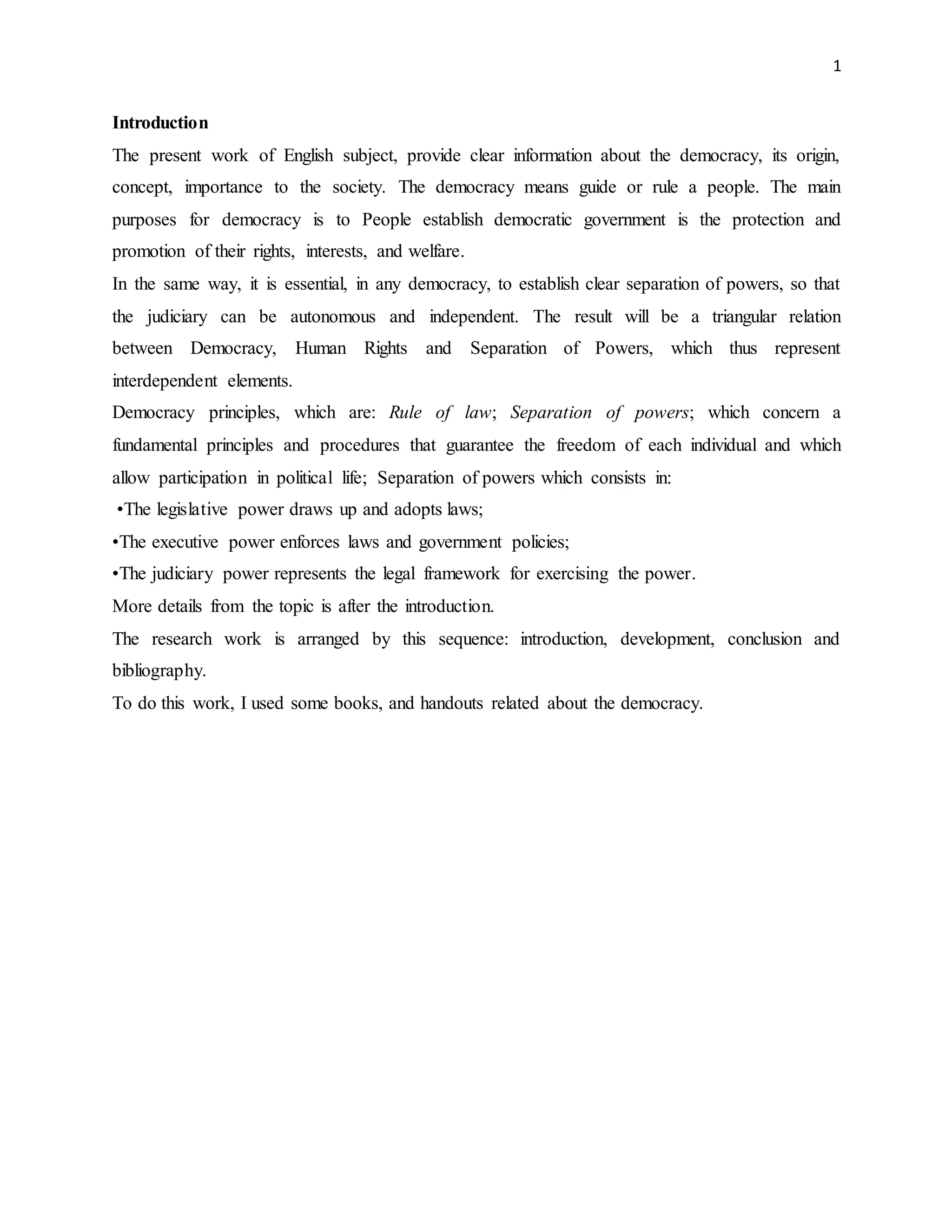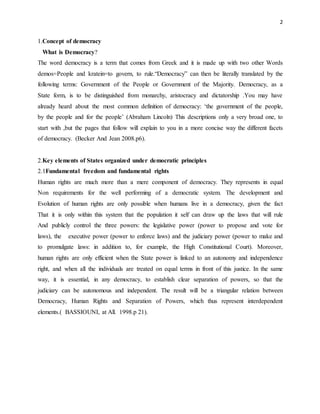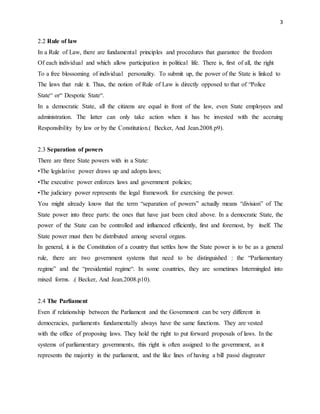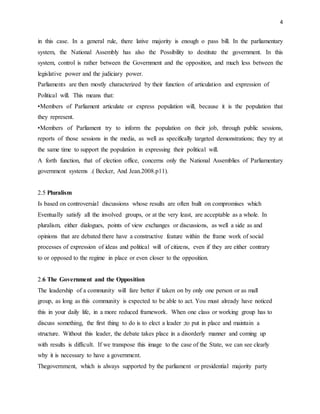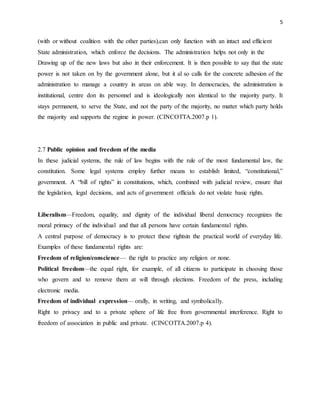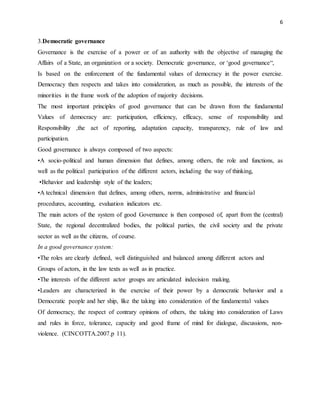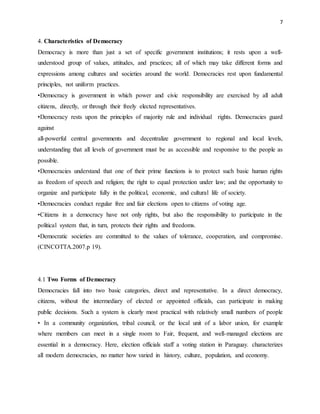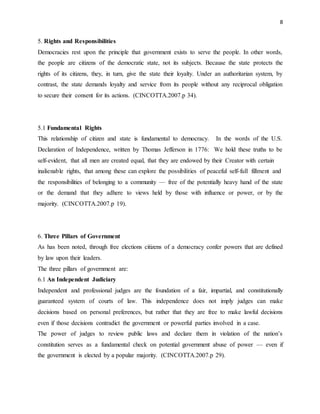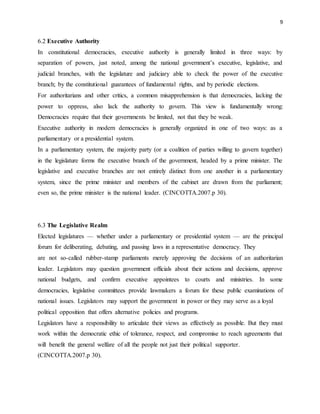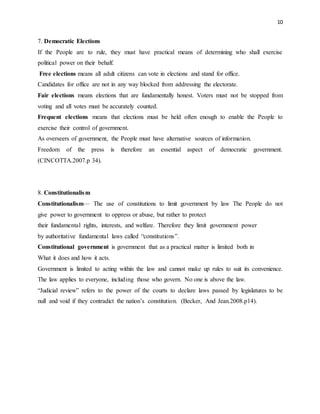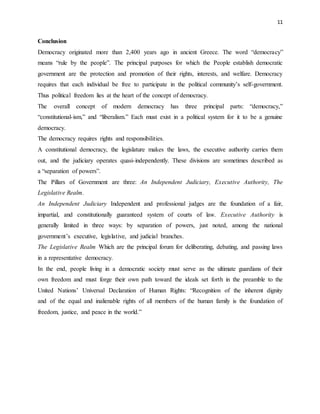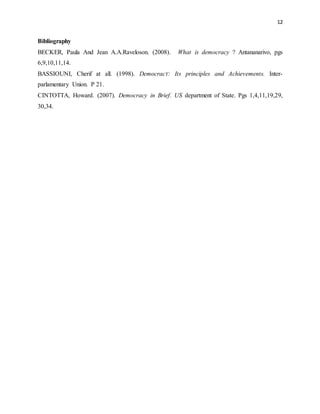Democracy originated from the Greek words "demos" meaning people and "kratein" meaning to rule. The key principles of democracy include rule of law, separation of powers, fundamental freedoms and rights, and free and fair elections. For a democracy to function properly, power is divided among the legislative, executive, and judicial branches; and citizens are guaranteed civil liberties like freedom of speech, religion, press, and political participation. The document also discusses concepts like pluralism, the role of opposition parties, and the importance of an independent media to hold governments accountable in a democracy.
